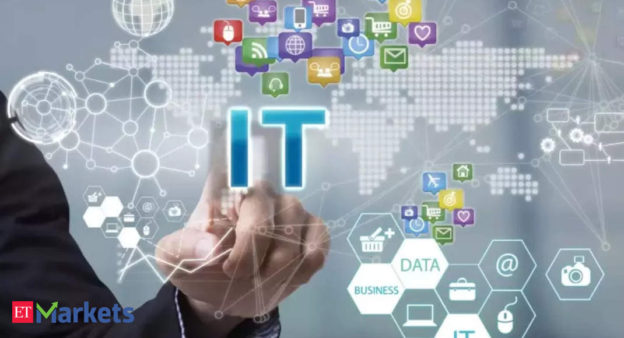Brillio aims to change the way the infotech industry thinks about digital transformation by building a full stack of digital solutions at scale
With digital contributing to over 50% of the revenues of IT services companies globally, it is evident that legacy IT is seeing a fundamental shift in its offerings and operations, further accelerated by the Covid-19 pandemic. In order to take advantage of this growing demand, Brillio, a company focused on digital technologies and big data analytics, has been doubling down on building a stack of all digital products and solutions through in-house innovations and partnerships with large digital infrastructure providers.
“Since the beginning, we wanted to tread away from legacy IT and build a strong foundation in full digital capabilities. Not only that, we wanted to build a product mindset that is agile and a culture based on that,” says Raj Mamodia, founder and CEO, Brillio. “Mobile, cloud, AI and analytics and IoT are disrupting the industry in a way we have never seen before which require this culture and skill-set.”

Mamodia says modernisation of legacy systems is also part of the digital agenda. “We can’t simply ignore the earlier investments made,” he says, adding that Brillio has an almost 50:50 focus on building brand new products and modernising legacy systems and that is largely due to the set of customers it works with. Platform engineering, data engineering, gaining insights and intelligence and customer experience transformation, according to him, puts a company on a path to becoming a digital enterprise. “We worked with a cold supply chain business which was only a few hundred million dollars worth initially and after five years’ time, it is several billion dollars huge today and is the largest cold supply chain business in the world. IoT, Analytics, automation are at the core of this transformation,” says Mamodia.
In addition to improving the top line of a business, digital changes the way an enterprise is valued. “Digital has a snowballing effect on an enterprise’s value. For investors, this means they do not have to evaluate an enterprise based only on its legacy but how the investments in digital will pay off in future, in a different yet profound way,” adds Mamodia.
Brillio, headquartered in Santa Clara, California, has also invested in setting up design studios to focus on customer experience software and nurture expertise in e-commerce, marketing and sales platforms. According to Mamodia, in the past, platforms and practices used to exist in silos. However, this had to change so that enterprises could tailor experiences to their customers. “Customer experience is inclusive of platforms, engineering, analytics and engagement,” says Mamodia.
Driving the impact of the platforms and transformation is analytics, where the value unlocking happens using data and exponential technologies such as ML and AI, given that there is constant flow of data from IoT devices, operations of the enterprise and customers of the enterprises who use the products.
“Today the market is filled with boutique analytics players who either focus on scale or innovation, but we focus on both as our platforms are built to scale and the intelligence our customers need are highly specialised,” says Sandhya Balakrishnan, region head – US, data analytics and engineering, Brillio. “In the past, across the industry, too many proof-of-concepts were not taken to production and to prevent that, we have defined outcomes for each client while we take responsibility for the data we handle from multiple sources,” she adds.
Brillio invests 10% of its budget annually to build all these capabilities which includes resources and talent. “The focus areas are: what is relevant right now for customers to scale, what is emerging that will be relevant to the customers and lastly what customers do not think usually but pans out really well, say partnerships with AWS or Microsoft,” says Mamodia. “To keep this focus, we need to bring in talent who are not wired to take orders as in legacy IT, but with an agile mindset. We aim to hire 4000-5000 such people in India alone by 2022.”
https://www.financialexpress.com/industry/beyond-legacy-it-building-products-for-the-digital-era/2330197/







